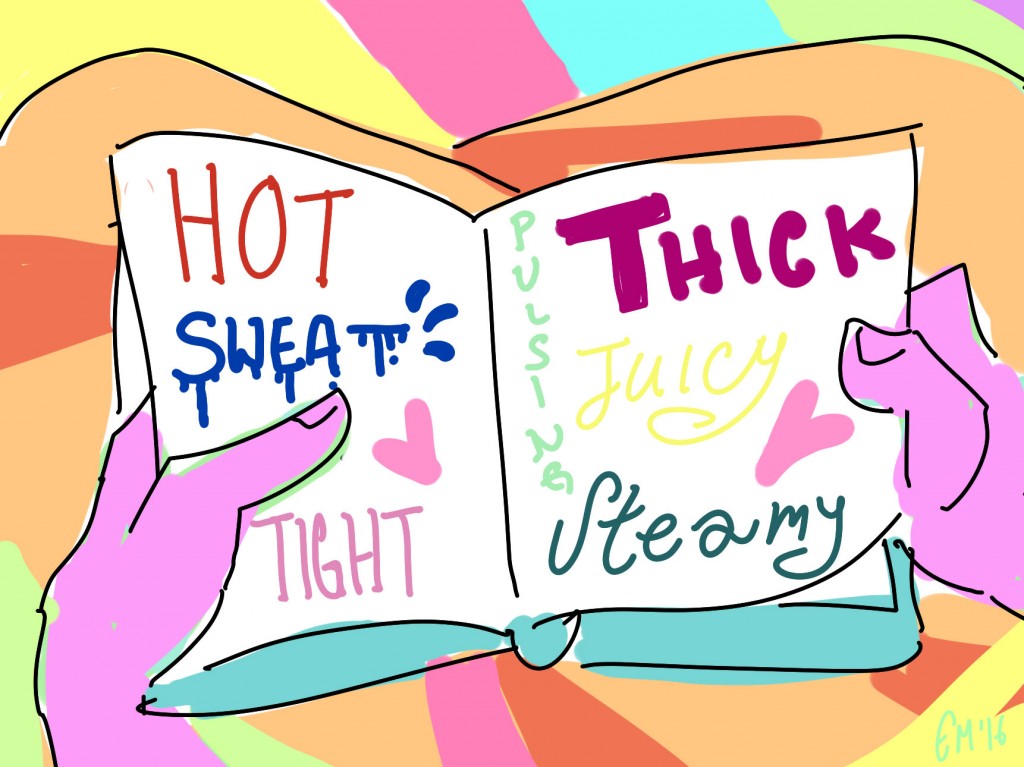
Erotic literature is usually something that you’d find stashed in a closet or online in the depths of the Internet, but one place you don’t expect to find it is in your college’s bookstore. Next semester, however, that will change.
Starting in the fall of 2016, the Binghamton University English department will be introducing a brand-new course about erotic literature. The course was the idea of, and will be taught, by associate professor of English Gayle Whittier.
The idea came to Whittier while she was teaching another course, “Beauty and Power in the Arts,” when she questioned why there is not an entire course on this genre.
“I started thinking about the whole issue of the erotic and how we don’t really teach it except here and there, and yet people are really interested in that literature,” Whittier said.
According to Whittier, one of the most prominent reasons for the absence of the class was the absence of people willing to teach it. She discussed the nervousness for younger men or men at large to teach this course because of the potential for them to be called out for sexual harassment. For young women, the problems of objectification arise and they may endure the problem of reflexivity between what is being taught and what is being seen.
“It occurred to me that I’m the perfect candidate,” Whittier said. “Actually, it’s because I’m old and because I’m unafraid of diving into literatures in general.”
While Whittier is excited about the course, she is still not sure what it will look like.
“It’s not a course in what is pornographic and what isn’t,” Whittier explained. “I’m interested in the erotic as what I would call ‘sex plus something else that is bigger.’ I’m interested in the way sex connects to not only psychology but also philosophy and aesthetics.”
Despite not yet solidifying the course’s syllabus, she is positive that it is going to be a mixed bag with something for everyone.
“I am letting the books come to my mind,” Whittier said. “The texts come, and then I let them rest and keep reading and see what plays with what. I like to design my courses aesthetically; that is to say I like an arc of meaning to emerge over the whole of the course. I’d like the works to connect, but not connect in an absolutely rigid way.”
Whittier said she plans to teach the classics of erotic literature, while still introducing a variety of unexpected works.
“I won’t be doing ‘Fifty Shades of Grey,’ but I am going to try to add more contemporary things,” Whittier said. “But I’m not sure what that will be.”
Some works she has considered include Gabriel Garcia Marquez’s “Love in the Time of Cholera,” Ernest Hemingway’s “A Farewell to Arms,” some of Georges Bataille’s work, as well as poems by John Donne and Sharon Olds.
“My aim as a teacher in the arts is to sophisticate peoples’ sense of the arts,” Whittier said. “So pleasure and sophistication are my two aims in all courses.”
And although the topics in the class are fun, she said that this class will be no different from her other courses.
“My courses are serious courses,” she said. “They are not light in content. I tend not to over-assign readings because I like people to dwell with them for a while.”
While it will be a new course, Whittier believes it will be slightly more conservative at first.
“I am feeling my way in the first time I am teaching this course,” she said. “I don’t know what my students will like and what they won’t like. I don’t know what will generate interest and what will generate less.”
Whittier said she enjoys taking the students’ opinions into consideration and believes people will begin suggesting material.
Amidst her excitement about this new course, Whittier is still concerned about how eroticism has been “seriously amputated in the climate of formal education.” She says that exposing ourselves to this type of work, however, can be the cure.
“I think there is a different kind of Puritanism that the way we look at sexuality is usually from an admonitory point of view when it’s talked about at all,” Whittier said. “I think that looking at literatures that deal with sexuality and the erotic is one way to return to the reality of the body, which is something in our culture that has become increasingly distant to us.”


